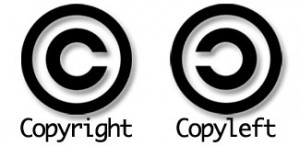This article will tell you a detailed comparison between Copyright and Copyleft. Find the complete details below.
Copyright laws are created such that unauthorized selling or copying of intellectual property of an author is legally publishable and protects the authors. A copyrighted document can only be copied or sold after taking prior permission from the author.
On the contrary, a Copyleft gives the freedom for any 3rd party to modify and distribute the software of documentation back to public, on a condition that it remains free. When considering Copyleft, the document or software could be placed under Copyrights of the author and other people can make use of distribution terms like GNU Free Documentation License that provides everyone the rights for modifying and redistributing the code without changing the documentation terms. It will assure that source code can be distributed but everyone will know about the actual author of the software. Also the freedom to distribute is conditional that the documentation terms are not changed and this is called “CopyLeft”. 
Generally the terms and documentation of an author’s work is copied along with a license. This license provides the person who owns a copy of the original work, the similar freedom to modify and distribute it as the author of it which includes different levels of freedom as below:
- Freedom to use the software/contents
- Freedom to study it
- Rights to copy and share a document/software with any 3rd party
- Rights to change the work and to distribute the modified work without getting permission from anyone.
If a document or software is not copyrighted and remains in the public domain, it could be modified and redistributed as a proprietary product. The Copyleft assures that both the original source and modified versions of the document/software remains free, and rights are given for everyone who wants to modify and distribute the software for free. Many open source software applications are under the terms of the CopyLeft especially Linux based applications. Any programmer can take the source code, modify it and distribute it free, but he is not allowed to make money or use the software for any commercial selling.
But Copyright on the other hand does not give anyone the right or authority to modify or sell the software/document without getting prior written consent from the actual author. No one can modify the document and distribute it for free. Copyright gives exclusive rights for the actual author to ban the publication, adaptation or distribution of his original work.
Copyright can only be allowed for a certain time span after which it is supposed to be distributed into the public domain. Copyright can be used for any expressible form of information/idea and could be digital media, software, documentation or patent etc. Copyright can be used for any intellectual property which includes trademarks and patents.
Copyleft on the other hand gives rights for anyone who wants to modify and distribute the original creation for free provided they use the same Copyleft license. Richard Stallman developed GNU General Public license which is a popular Copyleft license for open source software.
Another popular Copyleft license is Sharelike which was developed by a non-profit organization named Creative Commons. Rather than giving the complete authority to public domain, Copyleft puts some restrictions on distribution of the software along with proper terms of license on free basis. The Copyleft software cannot be modified and distributed on a commercial basis.

